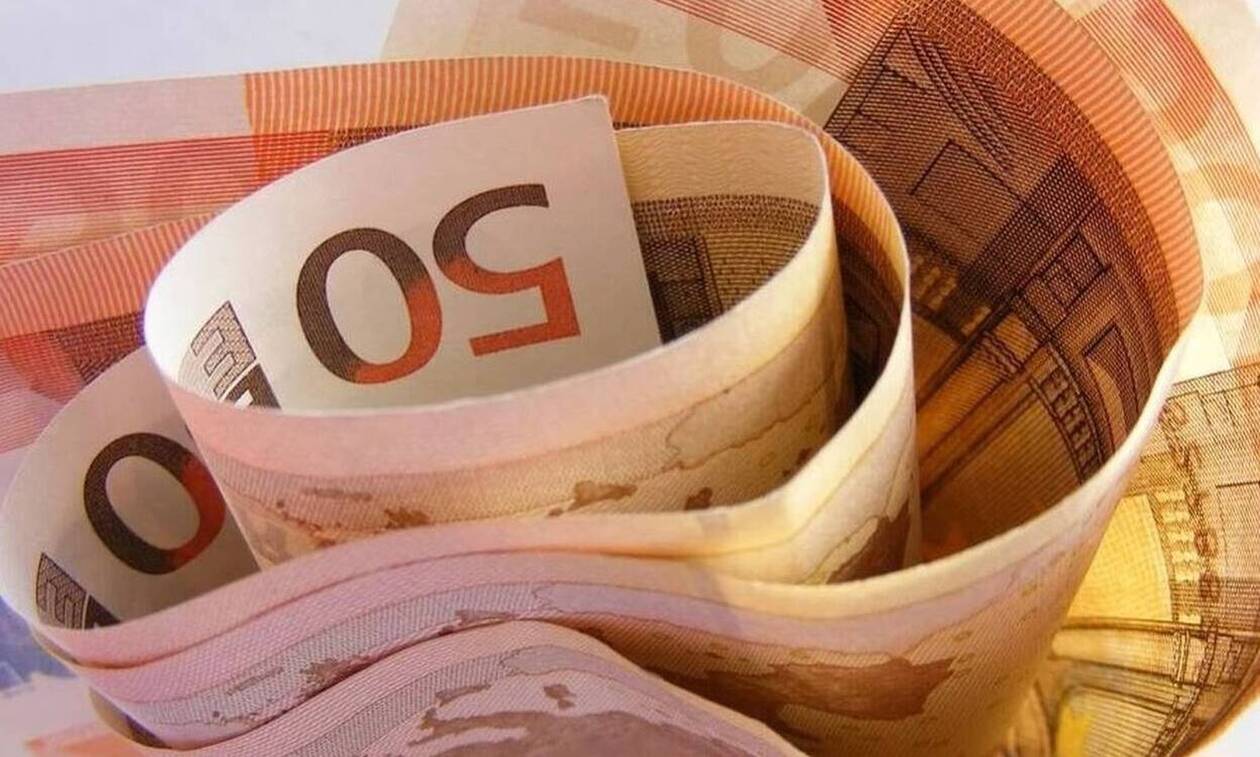
With the price of natural gas rallying, the government is widening support measures to keep households warm in the difficult winter ahead, while with the aim of reducing natural gas consumption it is giving a double heating allowance as an incentive for citizens to stop using natural gas for their heating and return to heating oil.
On the taxation front, the Prime Minister from the Thessaloniki International Fair platform announced the definitive abolition of the solidarity levy for all taxpayers from January 1, 2023, the extension for another six months of the reduced VAT rates on coffee, non-alcoholic beverages, transportation, cinema tickets , a new two-year suspension of the 24% VAT on new constructions and a temporary “freeze” of the trade fee for businesses and professionals making new hires.
In particular, the TIF tax package includes:
1. Heating allowance of 300 million euros to 1.3 million households. During the 2021-2022 season, 174 million euros were allocated from the state budget for heating allowances. In the new winter season, the budget will distribute 300 million euros. This means that the amount of the allowance that the beneficiaries will receive will be increased, it will move above the 100 – 750 euros that was last year, while at the same time the criteria (income and assets) are being expanded to support 1.3 million households . Last year, beneficiaries of the heating allowance were those who had an annual total family income, regardless of its source of origin, real and assumed, up to 14,000 euros for a single person and 20,000 euros for a married person without children, which was increased by 3,000 euros for each child.
Double heating allowance
Households that will consume oil or other forms of fuel other than natural gas for the first time this year, if this can be possible, will receive a double heating allowance. Of course, switching households from natural gas to heating oil is not an easy task. There are a number of practical issues especially in apartment buildings where oil burners have been replaced with natural gas burners.
Intervention at gas pumps
The government is also planning a special intervention that will reduce the cost of heating oil at the pump for all consumers. This measure is expected to be specified by the financial staff at the press conference to be held on Monday.
It is noted that in the 2021-2022 season the heating allowance was granted:
– To natural persons, single or married or widowed or to persons who have entered into a cohabitation agreement or are separated or divorced, who for their heating consume internal combustion heating oil or natural gas or liquid gas or firewood or biomass (pellets) or thermal energy through district heating.
– For the consumption of the subsidized types of heating fuel and thermal energy through district heating, for the properties, which they use as their main residence at the time of submitting the application, whether they are leased or freely granted or owner-occupied. Especially for the granting of a heating subsidy to consumers of firewood and biomass (pellets), an additional condition applies that the property is located in a settlement with a population equal to or below 3,500 inhabitants and the corresponding subsidy coefficient is equal to or greater than 0.8. Especially for the granting of a heating allowance to consumers of thermal energy through district heating, an additional condition has been set that the property is located in one of the municipalities of Serres, Eordaia, Kozani, Amyntaio or Megalopolis.
2. Abolition of solidarity contribution for all: Civil servants and all pensioners with annual incomes above 12,000 euros will see from January 1, 2023, their earnings increase by 22 euros and up to more than 676 euros a year. The special solidarity levy, a memorandum measure is permanently abolished for 2.7 million taxpayers since the measure already applies to taxpayers who obtain income from the private sector. The abolition of the levy means that a pensioner or civil servant with an annual income of 13,000 euros will have a benefit of 22 euros a year. For an income of 15,000 euros the benefit is 66 euros a year, for an annual income the benefit increases to 132 euros a year, for an annual income of 20,000 euros, civil servants or pensioners will earn 176 euros a year. For an annual income of 30,000 euros, the annual addition will reach 676 euros. The higher the income, the higher the benefit. The relief for civil servants and pensioners will automatically be reflected in their monthly earnings as the solidarity levy is withheld from wages and pensions alongside income tax unlike the self-employed, income earners and other categories of taxpayers who are certified with next year’s tax return .
3. VAT on new constructions “frozen”: New constructions will forgo the 24% VAT until the end of 2024. The “freezing” of VAT on newly built properties is expected to support the real estate market which is on an upward trajectory in recent months and also to attract more foreign investment.
4. New extension of the reduced VAT in coffee, transport, tourism, culture. Until June 30, 2023, reduced VAT rates will be maintained in transportation, coffee and non-alcoholic beverages, Culture and Tourism, gyms and dance schools. In this context, cinema tickets will remain cheaper, while the reduced VAT will cover tickets for train, metro and tram routes, city and intercity buses, air tickets, passenger ship tickets, transport with a combination of road, air and sea means.
5. Trade tax: Apprenticeships and small businesses planning to hire new employees will not pay trade tax if they increase their average annual number of full-time employees in that year.
Latest News

Airbnb Greece – Initial CoS Ruling Deems Tax Circular Unlawful
The case reached the Council of State following annulment applications filed by the Panhellenic Federation of Property Owners (POMIDA)

Mitsotakis Unveils €1 Billion Plan for Housing, Pensioners, Public investments
Greek Prime Minister Kyriakos Mitsotakis has announced a new set of economic support measures, worth 1 billion euros, aiming to provide financial relief to citizens.

Alter Ego Ventures Invests in Pioneering Gaming Company ‘Couch Heroes’
Alter Ego Ventures' participation in the share capital of Couch Heroes marks yet another investment by the Alter Ego Media Group in innovative companies with a focus on technology.

Corruption Still Plagues Greece’s Driving Tests
While traffic accidents continue to claim lives on Greek roads daily, irregularities and under-the-table dealings in the training and testing of new drivers remain disturbingly widespread

Pope Francis Died of Stroke and Heart Failure Vatican Confirms
As news of the official cause of death spread, tributes poured in from across the globe. The 1.4 billion-member Catholic Church is united in grief, remembering a pope who championed inclusion, justice, and compassion

Increase in Both Museum Visits, Revenues for 2024
As expected, the Acropolis was the top archeological site in the country, followed by Sounion, Mycenae, the ancient theater of Epidaurus, and Vergina in northern Greece

Where Greece’s Tourists Come From: A Look at 2025’s Top Visitor Markets
The United Kingdom continues to hold the top spot as the largest source of incoming tourism, with 5.6 million seats booked for Greece this summer — up 2.2% from last year. This accounts for 20% of all international air traffic to Greece

Pope Francis: A Pontiff Who Reshaped the Papacy and Sparked a Global Conversation
His first words from the balcony of St. Peter’s Basilica—“Brothers and sisters, good evening”—set the tone for a pontificate that would challenge norms, favor mercy over dogma, and bring the papacy closer to the people.

When Blue Skies was Unmasked as ND’s Political ‘Slush Fund’
The fact that so many top New Democracy (ND) party cadres were paid by the firm Blue Skies, owned by Thomas Varvitsiotis and Yiannis Olympios, without ever citing this publicly, raises very serious moral issues, regardless of the legality

Greek Women’s Water Polo Team Top in the World after 13-9 Win Over Hungary
The Greek team had previously defeated another tournament favorite, the Netherlands, to reach the final.











![Πλημμύρες: Σημειώθηκαν σε επίπεδα ρεκόρ στην Ευρώπη το 2024 [γράφημα]](https://www.ot.gr/wp-content/uploads/2025/04/FLOOD_HUNGRY-90x90.jpg)




![Ξενοδοχεία: Μεγάλο το ενδιαφέρον για επενδύσεις στην Ελλάδα – Η θέση της Αθήνας [γραφήματα]](https://www.ot.gr/wp-content/uploads/2025/03/Athens-hotels-90x90.jpg)
























 Αριθμός Πιστοποίησης
Αριθμός Πιστοποίησης